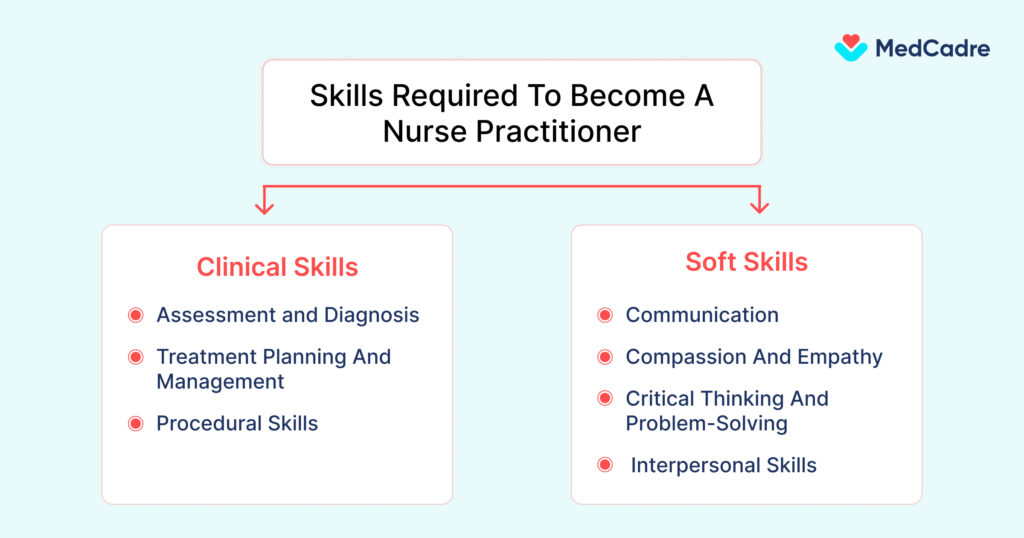Nurse practitioners (NPs) are playing an increasingly important role in the ever-changing healthcare industry. These advanced practice nurses, who have considerable training and experience, play an important role in increasing access to excellent care, promoting patient-centered approaches, and contributing to the overall efficiency of the healthcare system.
But, are you even aware of what nurse practitioners do, and how they contribute to the healthcare care industry, if not! We are here with the blog for the complete clarity of the role of nurse practitioners in healthcare. So, let’s get started.
Who are Nurse Practitioners?
Nurse practitioners (NPs) are registered nurses who have earned a master’s degree in a specialized healthcare field, such as family practice, pediatrics, or gerontology. This higher education provides them with the knowledge and abilities for the role of nurse practitioners:
- Perform physical examinations.
- Diagnose and treat illnesses and chronic conditions.
- Order and interpret diagnostic tests.
- Prescribe medications.
- Develop and manage treatment plans.
- Provide preventive care and health education.
- Coordinate care with other healthcare professionals.

Expanding access to care
One of the role of nurse practitioners most notable milestones is their capacity to bridge the healthcare access gap, particularly in underprivileged communities.
NPs can provide main and specialty care services in locations where there aren’t enough doctors. This is especially important in rural locations where patients may have significant travel times to see a doctor.
Studies have demonstrated that NPs are effective in providing high-quality care, frequently achieving patient results comparable to physicians.
Patient-centered approach
Role of nurse practitioners are noted for their holistic approach to patient care, which promotes an in-depth knowledge of each patient’s unique requirements and preferences.
Their extensive nursing background enables them to develop close relationships with patients, encouraging trust and open communication. NPs frequently spend more time with patients than physicians, enabling a thorough evaluation of their physical, mental, and emotional health.
This emphasis on patient-centered care can result in better treatment outcomes, higher patient satisfaction, and greater participation in preventative care.
Enhancing the healthcare efficiency
Job of nurse practitioner help the healthcare system run more efficiently by streamlining processes and decreasing unnecessary referrals to physicians.
They may manage a wide range of common illnesses and collaborate with other healthcare providers to ensure patients receive the best care at the right time. This collaborative approach reduces healthcare expenses by eliminating unneeded testing and treatments.
Areas of practice for nurse practitioners
Nurse practitioner requirements are advanced practice nurses who can work in a number of healthcare settings and specialize in certain areas of practice. They offer a variety of services, including:
- Diagnosis and treatment of acute and chronic illnesses
- Health promotion and disease prevention
- Education and counseling
- Management of chronic conditions
- Prescribing medications
- Ordering and interpreting diagnostic tests
Here are some of the most common areas of practice for nurse practitioners:
- Family practice: Nurse practitioner requirements in family practice offer comprehensive treatment to patients of all ages, from newborns to the elderly. They can cure a wide range of health issues, including ordinary colds and complicated chronic disorders.
- Adult-gerontology primary care (AGPCNP): AGPCNPs concentrate on the healthcare requirements of adults and older people. They can provide general care, treat chronic conditions, and give preventive care.
- Adult-gerontology acute care (AGACNP): AGACNPs operate in hospitals and other acute care facilities, treating critically ill or injured patients. They can perform a range of treatments, such as inserting IVs and delivering medication.
- Pediatrics: Pediatric NPs treat newborns, children, and adolescents. They may diagnose and treat a variety of childhood illnesses as well as conduct physical exams and provide vaccinations.
- Women’s health: Women’s health nurse practitioner requirements provide complete care for women throughout their lives. They can give screenings, treat chronic illnesses, and perform gynecological procedures.
- Neonatal: Neonatal nurse practitioners (NPs) care for babies in both hospitals and communities. They can diagnose and manage a wide range of newborn health disorders, including premature birth and respiratory issues.
- Psychiatric mental health (PMHNP): PMHNPs provide mental health services to people of all ages. They can diagnose and treat mental health issues, as well as prescribe medications and offer therapy.
The particular scope of practice for the role of nurse practitioners varies according to their state and field of specialization. It is critical to consult with your state’s licensing board to learn more about the specific services NPs can offer in your area.
Future outlook of the job of nurse practitioner
The future for Nurse Practitioners (NPs) in the United States is promising. According to the Bureau of Labor Statistics, NPs are estimated to rise by 52.2% between 2020 and 2030, making it one of the fastest-growing vocations in the country. This rise is fueled by numerous sources including:
- An aging population: As the baby boomer population matures, the demand for healthcare services is predicted to rise dramatically. Nurse practitioners can help address this demand by providing primary care, treating chronic illnesses, and performing various procedures.
- Physician shortage: There is an anticipated physician shortage in the United States, particularly in rural and overlooked areas. NPs can help close the gap by providing care in these areas.
- Increased access to care: NPs can work in a variety of settings, including hospitals, clinics, and patients’ homes. This flexibility increases access to care for those who may have limited access to a physician.
The future of the job of nurse practitioner in the United States looks promising. If you’re thinking about a healthcare career, being a nurse practitioner is a gratifying and in-demand alternative, you can apply for the job directly to hospitals, or else you can leverage an agency like MedCadre, we have more than 300 jobs listed for the nurse practitioner in the USA.
Conclusion
Nurse practitioners (NPs) are essential in healthcare, providing essential services ranging from diagnosis to treatment. Their patient-centered approach, ability to bridge healthcare gaps, and efficiency in streamlining processes make them invaluable assets. With the demand for healthcare rising, NPs offer a promising solution, serving diverse needs across various practice areas. Embracing a career as an NP not only offers personal fulfillment but also addresses critical healthcare challenges, ensuring quality care for all.


